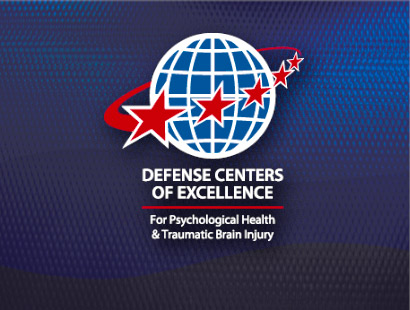Understanding Changes to Posttraumatic Stress Disorder and Acute Stress Disorder Diagnoses in DSM-5

DCoE Webinar Series (Psychological Health): May 2014
Date/Time: May 22, 2014; 1-2:30 p.m. (EDT)
The Diagnostic and Statistical Manual of Mental Disorders (DSM) provides a standard common language to classify mental disorders. The fifth revision of the DSM (referred to as DSM-5, published in May 2013) includes changes to the diagnostic criteria for posttraumatic stress disorder (PTSD) and acute stress disorder. Based on scientific research and clinical experience, the definitions of the disorders were revised to include a broader range of symptoms with more specific criteria.
This webinar elaborates on discussion, participant feedback and questions from the July 25, 2013, webinar “DSM-5: Revisions and Implications Related to Posttraumatic Stress Disorder.” Panelists will include Dr. Matthew J. Friedman who led revision of the “Trauma and Stressor-Related Disorder” section of DSM-5, and Dr. Charles W. Hoge, a subject matter expert
You are invited to the DCoE May 2014 webinar titled, Understanding Changes to Posttraumatic Stress Disorder and Acute Stress Disorder Diagnosis in DSM-5. We look forward to your participation on Thursday, May 22, 2014 from 1-2:30 p.m. (EDT). Below are the event details and instructions for participating.
LEARNING OBJECTIVES:
- Describe key changes in clinical definitions of PTSD and acute stress disorder
- Examine evidence, rationale and discussion regarding the changes
- Differentiate the practical and clinical implications of the changes
PRESENTERS:
Matthew J. Friedman, M.D., Ph.D.
Executive Director, U.S. Department of Veterans Affairs National Center for PTSD,
Professor of Psychiatry and Professor of Pharmacology and Toxicology, Geisel School of Medicine at Dartmouth
White River Junction, Vt.
Charles W. Hoge, M.D.
Neuropsychiatry Consultant, Office of the Army Surgeon General
Senior Scientist, Walter Reed Army Institute of Research
Staff Psychiatrist, Walter Reed National Military Medical Center
Bethesda, Md.
MODERATOR:
Cmdr. Meena Vythilingam, M.D., U.S. Public Health Service
Chief Medical Officer, Deployment Health Clinical Center
Board Certified Psychiatrist
Bethesda, Md.
HOW TO REGISTER/ENROLL IN A COURSE IN ETHOS:
**IF YOU ARE A NEW USER, PLEASE BE SURE TO CLICK ON THE "PRE-REGISTRATION QUESTIONNAIRE" LINK AT THE BOTTOM OF THE PAGE BEFORE COMPLETING THE REGISTRATION PROCESS, THEN PROCEED TO FOLLOW THE STEPS BELOW.
- Login to your Duke Ethos Account at http://continuingeducation.dcri.duke.edu/understanding-changes-posttraumatic-stress-disorder-and-acute-stress-disorder-diagnosis-dsm-5
- Scroll down to the bottom of the page and click on “Take Course” and/or "Pre-Registration Questionnaire"
- Once you have completed the "Pre-Registration Questionnaire" you will click on the link titled "This course is a dependency of Understanding Changes to Posttraumatic Stress Disorder and Acute Stress Disorder Diagnosis in DSM-5" which will return you to the course landing page.
- Click on Take Course, you are now registered for the course.
- Upon completion of registration, a confirmation email will be sent providing webinar event details.
IF YOU HAVE DIFFICULTY REGISTERING, PLEASE CONTACT THE SERVICE DESK AT, 919.668.8916.
TO VIEW THIS WEBINAR, PLEASE FOLLOW THE STEPS BELOW:
- Login to your Duke Ethos Account at http://continuingeducation.dcri.duke.edu/understanding-changes-posttraumatic-stress-disorder-and-acute-stress-disorder-diagnosis-dsm-5
- Scroll down to the bottom of the page and click on “Take Course”
- Click on the Webinar icon for Adobe Connect provided on the screen.
*If you have any technical issues accessing Adobe Connect, you may log in to Defense Connect Online (DCO) by clicking the DCO icon. You need only to sign on to either one of the sites to fully participate in the webinar.
- The webinar window will then appear on your screen.
- Login as a guest to view the webinar.
- Audio is not provided via Adobe Connect or DCO. For audio, please dial: CONUS 888-877-0398, participant passcode: 3938468. International 210-234-5878, participant passcode: 3938468.
TO COMPLETE ALL COURSE REQUIREMENTS AND CLAIM CONTINUING EDUCATION CREDITS:
- Complete the post-test.
- Complete the course evaluation.
- Attest to your hours of completion.
- Download your certificate.
CONTINUING EDUCATION:
Continuing education credit is available from Duke Medicine. You must register on or before May 22, 2014, at 3 p.m. (EDT) to qualify for the receipt of continuing education credit.
To qualify for receipt of continuing education credit for applicable webinars, eligible participants must create a profile in the Duke Medicine Learning Management System and register for the event on, or before, the event registration deadline. Complete responses to all pre-registration questions are required to be eligible to receive credit for attending this event. For guidance on creating a user account and event registration in the Duke Medicine Learning Management System site, please visit https://www.dcri.org/cee/education/ethosce-learning-center/EthosCE_Fundamentals.pdf
Please note: DCoE's awarding of continuing education credit is limited in scope to health care providers who actively provide psychological health and traumatic brain injury care to U.S. active-duty service members, reservists, National Guardsmen, military veterans and/or their families.
For additional details, please visit http://www.dcoe.mil/Libraries/Documents/DCoE-Monthly-Webinar-Series-Continuing-Education-Accreditation-April-2014.pdf.
Available Credit
- 1.50 AMA PRA Category 1 Credit(s)™
- 1.50 ANCC
- 1.50 Attendance
- 1.50 APA Credit
- 0.15 CEU
- 1.50 NASW credits
- 1.50 NBCC

 Facebook
Facebook X
X LinkedIn
LinkedIn Forward
Forward